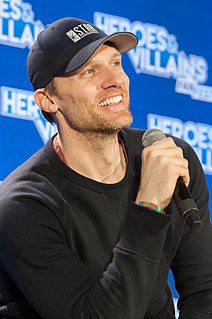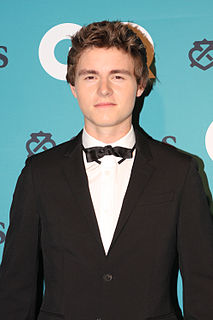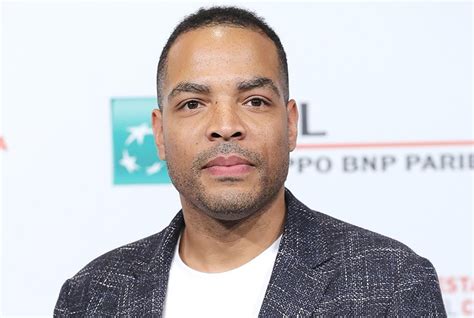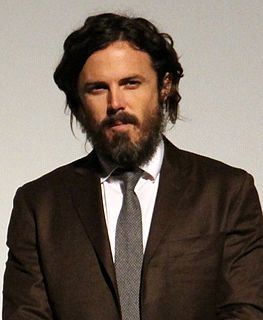A Quote by Gwyneth Paltrow
I'm a lot more selective with work these days. My perfect plan is to do one movie every nine months. It would have to be a project that I found inspiring. It would also have to include other actors and a director I am inspired to work with.
Related Quotes
Is there deeply embedded change within our industry? And I would say, as a black filmmaker, it's easy for me to focus my attention on black work, but true change would include brown work, and it would include work by Asian-Americans, and it would include natives, and it would include women, and it would include more LGBTQ voices.
I came out to Los Angeles for a couple of meetings in the summer of 2005, and I ended up getting a movie called Firehouse Dog for Fox. And I thought, "Oh, man. I'm doing a movie. Maybe I'll work a lot more now. I'm an actor now." Then, for eight, nine months I didn't work after that. After that movie, I began to get some guest star roles, fairly consistently, but because I had been so presumptuous before in thinking that the other jobs would lead to something, I realized: "Just get up. Go to work. Go home. This is your job just like everyone else's job."
I had just 15 days to work on my body for the climactic fight of 'Bodyguard.' And I would work on every muscle of my body two/three times a week. I would have developed a superb body if I had three months, but squeezing it into 15 days can be harmful. Also, as you grow older, your metabolic rate slows down.
In the old days when I first was coming up, you would turn up on set in the morning with your coffee, script, and hangover and you would figure out what you were going to do with the day and how you were going to play the scenes. You would rehearse and then invite the crew in to watch the actors go through the scenes. The actors would go away to makeup and costume and the director and the DP would work out how they were going to cover what the actors had just done.
I feel like I've been picky through the years and would do one movie a year or one movie every two years, and I want to work a lot more. So if I can find something that just happens right away as a director, I'll do it if I really love it, but otherwise, I want to keep working as an actor and getting better.
I had a stormy graduate career, where every week we would have a shouting match. I kept doing deals where I would say, 'Okay, let me do neural nets for another six months, and I will prove to you they work.' At the end of the six months, I would say, 'Yeah, but I am almost there. Give me another six months.'
I've got a lot of examples about moments where I thought something would work on film and it didn't work, but I never came to that decision with the film half shot, where I was stuck on a runaway train and couldn't jump off. On those occasions where I have admitted defeat, that this is not going to work, I haven't embarked on that project and made that movie.
Every film you work on is different, and that's part of what it's like for anybody who works on a film, is to learn how to work with others. Learn from top to bottom. Actors have to learn how to work with the director and the director has to learn how to work with actors, and that's not just those two departments.



































